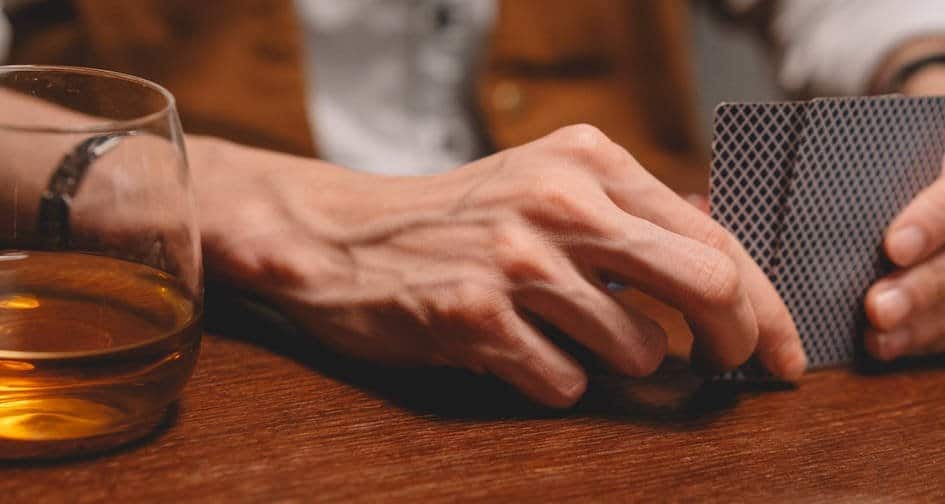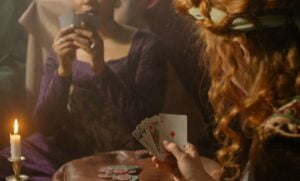Gambling is a fun recreational activity but some card games can be highly competitive. If you’re someone who has a strong spirit of competition you’re going to see gambling as more than a game and more of a competition. In this case, you’re going to have a problem handling failure. Everyone wants to be a winner whether they have a strong spirit of competition or not. With card games, building your skills will give you an edge over other players and several skills need building if you’re to become a professional card player. One of the most important skills in the arsenal of every advanced player involves psychological tricks. You can use mind games to win the game before it ends. As long as you’re confident in yourself and your ability to win, playing psychological tricks in card games will work perfectly. What’s more, you don’t need to do anything illegal or unethical.

Top Psychological Tricks to Win in Card Games
1. Understand Your Opponents Tendencies
In the gambling world, tendencies refer to how your opponents react when they are under pressure. You need to be extremely observant if you want to understand their tendencies. Tendencies are the core tenets of gambling. What do your opponents do when you apply pressure on them? Do they start sweating? Do they start shouting? Or do they stay calm and collected? Only the most advanced players have what it takes to act indifferent irrespective of the direction the game is heading. When you’re taking note of your opponents, consider everything they do. Some players subconsciously tap a particular card, while some tap their feet when they are under pressure. Just lookout for any change in behavior or any repetitive behavior.
2. Manipulate Your Tendencies
Just as your opponents have tendencies, you also have tendencies and your opponents will probably be looking for how to get an edge over you by observing your tendencies. You can use this to your advantage by showing them what you want them to see or making sudden changes to your behavior to throw them off balance. You can trick them into lowering their guard if you act scared and make them feel like you’re losing. String them along with a particular pattern and break it when they least expect. Don’t let anyone observe your tendencies because they will use it against you just as you’re trying to use theirs against them. You should remain as unpredictable as possible but your opponents should think that they can predict your moves.

3. Don’t Let Anyone Know That You’re the Biggest Threat
Confidence is a good trait that gives you an edge during card games. However, you should not overplay your hand. Don’t let anyone know that you’re the biggest threat on the table. This trick might be most useful during fighting games but you apply the same strategies during card games. Don’t show off your skills during the first round or you’ll risk scaring weak opponents out of the table before you have the time to shine. Take your time and work your way up to greatness. Before anyone else knows what is happening, you’d be making your way out of the casino with their money.
4. Learn to Bluff and Identify Bluffers
Bluffing is one of the oldest tricks in the figurative card playing handbook. A player is said to be bluffing when they raise or bet with a hand that is supposed to be the best but isn’t. Bluffing is done to throw opponents off balance. You make them feel like you have the best hand but you know in your heart that this isn’t the case. When you bluff, there is a strong chance that at least one opponent will fold instead of continuing the game and that opponent might have a better hand than you. Bluffing is easy to master but you need to be extra careful when you’re playing with advanced gamblers. The bluff has to be subtle. If you overdo it, your opponents will know you’re bluffing. Instead of being so full of joy that it reflects on your face, act like you’re trying to hide the joy and the smile. You should also learn to identify bluffs when they are coming from your opponents. It’s not an exact science but it’s a good strategy.
5. Always Break the Silence
Playing a card game in awkward silence isn’t always the best approach. So, try and start conversations with your opponents during the game. Make sure that the conversation is something that everyone is interested in and make sure that you don’t engage in a conversation that doesn’t interest you. Starting small talk is also a good way to determine if your opponent is bluffing. It will be more difficult for them to maintain the same enthusiasm when they’re talking and bluffing. The gestures and facial expressions when you are engaging in small talk can be a sell-out. Every play needs to concentrate to pull off a bluff so you can distract them into revealing their true intentions.

6. Try Not to Look at the Cards as Instantly
This tip is most applicable when you’re playing poker but it can also be useful with other card games. Try as much as possible not to look at the cards as soon as you get them. Wait for your opponents to view their cards first. This is the best time to observe gestures and facial expressions. If you’re busy trying to check your cards, you might miss important tells from your opponents. So make sure that you’re always the last person to look at your cards on the table. When you take a glance, make sure that you’re in complete control over your gestures and facial expressions. After all, your opponents will most likely be watching you see if there is anything that they can use against you. Try as much as possible to avoid looking at your cards over and over again because you can’t remember the value of the cards. One glance is all you need. Long glances usually indicate that the card combination is weak.
7. Take Note of Their Betting Methods
Psychologists say that you can determine the nature of a card player by taking note of the arrangement of their chip stacks. Players with chip stacks that aren’t organized are more likely to be risk-takers than players who put in extra effort to organize their chips. These players with messy chip stacks care less about winning and more about having fun and enjoying the game. They are also more likely to bluff and cheat than players with organized piles. Some advanced players change their method of organizing chips and placing bets to make it difficult for their opponents to understand them. You should use this against your opponents too.
8. Never Show Weakness
No matter the value of your cards, never show weakness. The minute you give up any signs of weakness, your opponents will eat you up and pick their teeth with your bones. The only time you should show a little weakness is when you’re trying to bluff. However, bluffing is often a display of strength even when you have a bad hand but it can also be a display of weakness when the hand is strong. Come up with a poker face that is unique to you. Someone with a good poker face never shows emotions or changes their facial expressions from the beginning of the game to the end. If your opponents can’t identify a change in your expressions they can’t predict your next move or determine if you have a great card.

Bottom line
Playing card games is one of the most interesting things to do in a casino and you can have an edge over other players by combining game-playing skills with psychological skills. These psychological skills work well during live card games but they don’t work with online games since you will not be able to see your opponents when you’re playing online. Want to know more about casino games? Read how to improve your gambling skills.



